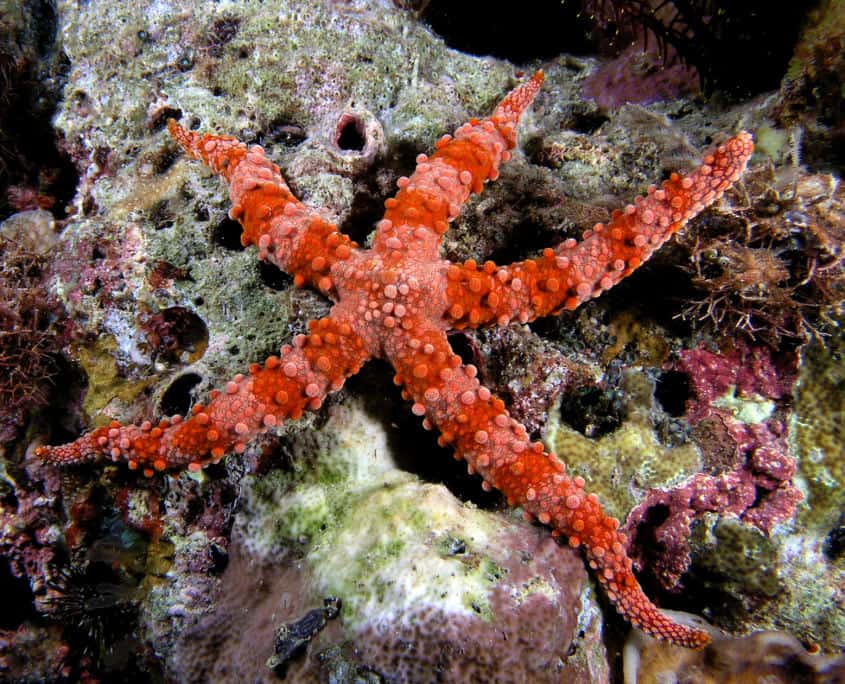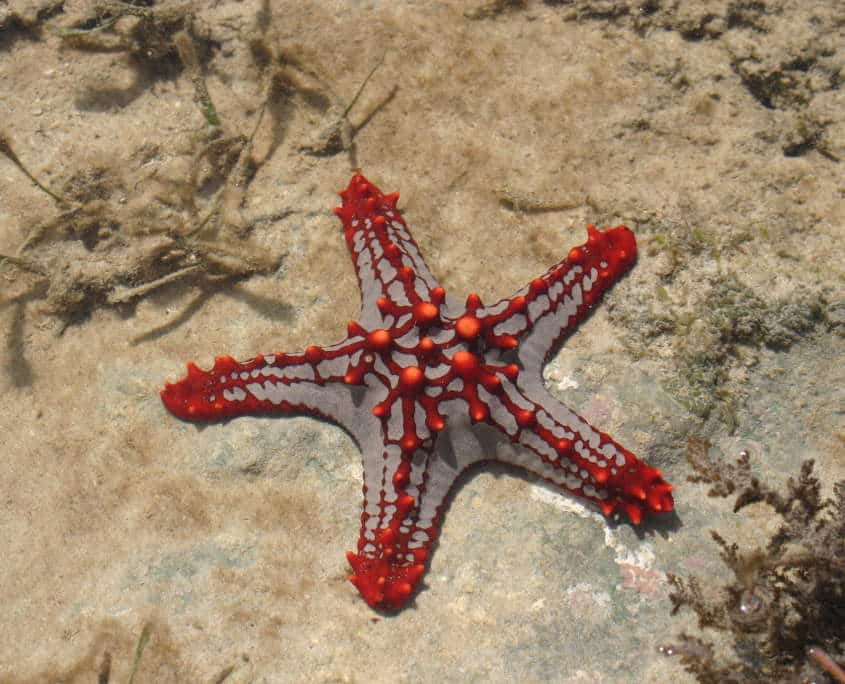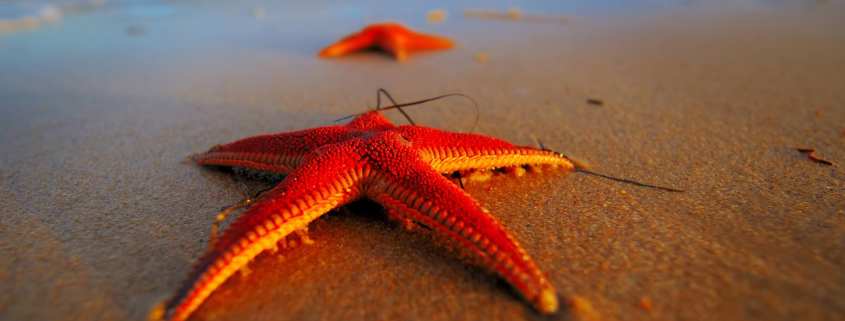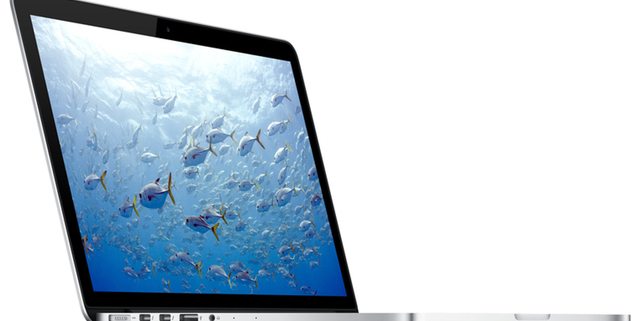Sea Stars – Because “Starfish” Aren’t Really Fish At All
For years, scientists have been trying to get us to stop calling these wonderful creatures “starfish.” Relatives of the sand dollar, sea urchin, and sea cucumber, a better name would be “sea stars.” There are almost 2,000 species of identified sea stars in the oceans and they vary widely in color, texture, size and shape. Sea stars normally live to be anywhere between 5 to 35 years old in the wild.

Red Starfish
Sea stars are marine invertebrates and typically have a central disc and five arms; however, some species have as few as four arms and others have as many as 10, 20, or even 40. They live in all of the oceans in the world and have adapted to both very warm and very cold climates. Sea stars only live in salt water though, if you put a sea star in fresh water it would die.
The main predators of sea stars are sea otters, rays, sharks, seagulls and different types of fish. They do have some pretty cool defenses though, they use camouflage to blend in with their surroundings, they can drop an arm to escape and then grow a new one in it’s place, and they have armor which protects them from many attackers. Sea stars armor consists of a tough covering on their upper side, which is made up of plates of calcium carbonate with tiny spines on the surface.
These marine animals feed on common ocean creatures like clams, mollusks, coral, and dying fish, they have a very unusual method of eating them. They eat clams and other shelled creatures by prying the shell open and then pushing their stomach out through its mouth and into the bivalve’s shell. Once it has digested its food, the sea star will slide its stomach back into its body. This strange way of eating enables sea stars to eat prey that are larger than their mouths.

Star Fish
Sea stars move using hundreds of tube feet, which are located on their underside. Some sea stars, like the adult sunflower sea star, can move at an incredible one meter per minute using its 15,000 tube feet. These tube feet are also used by sea stars to hold their prey.
Did you know that sea stars don’t have blood in their bodies? Instead of blood, they use seawater to pump nutrients through their bodies via a water vascular system. The sea star pumps seawater through its sieve plate, or madreporite, into its tube feet to extend them and then muscles within the tube feet retract them.
While sea stars aren’t totally blind, they can’t see anywhere near as well as humans. They have something called an eyespot on the tip of each arm, which allows them to sense light and shapes. If you look carefully at the tip of a sea stars leg, you might notice a red or black dot – that is its eyespot.
Next time someone talks about “starfish,” you can tell them that they aren’t really “fish” at all; they don’t have gills, scales or tails like fish do. These complex and beautiful animals are considered threatened by scientists due to pollution and loss of habitat, so we need to work together to keep our oceans clean, healthy, and thriving.
Watch Sea Stars move in this timelapse video.
Stars of the Sea from Karin Brussaard on Vimeo.



